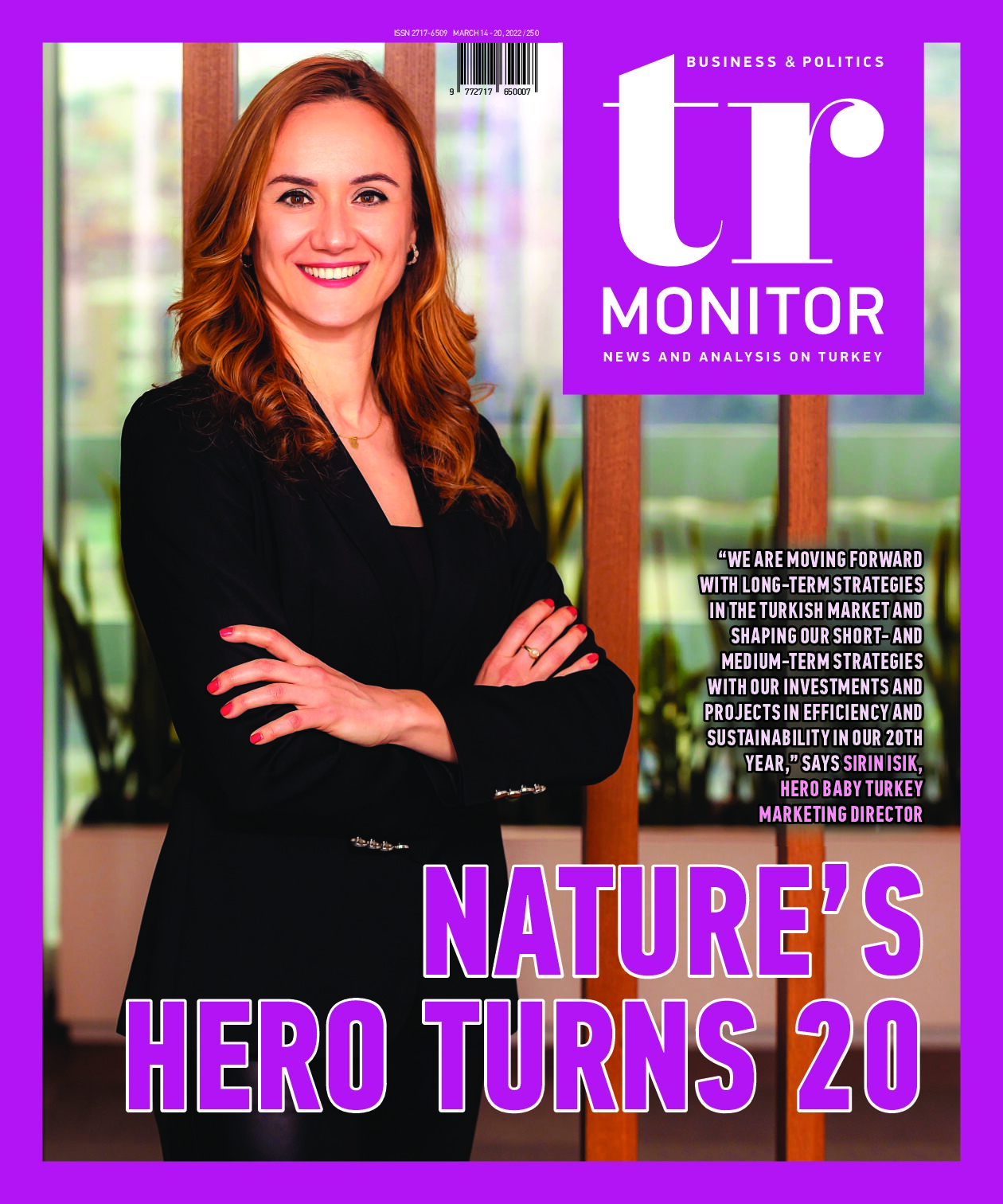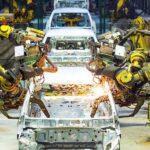By HUSNIYE GUNGOR
Hero Turkey is celebrating its 20th year in the market with a sustainability report shared with employees and shareholders to present the company’s approach and performance in transparency and sustainability in line with United Nations Sustainable Development Goals. Developing its products inspired by the power of nature, Hero Turkey attaches importance to implementing different projects to ensure the sustainability of natural life, according to Sirin Isik, Hero Baby Turkey Marketing Director. “With our Climate Positive 2030 vision, we are fulfilling this commitment by serving nature,” she said.
Seeding gardens with beneficial ladybugs help prevent insect infestations, for example. Or beehives are installed in gardens where the brand supplies raw materials so that bees pollinate the fruit trees in one project started in cooperation with leading educational institutions seven years ago. “These methods not only increase productivity by 100% but also raise the antioxidant levels and Brix degree,” said Isik, referring to the sucrose content of the fruit. The end products are tested with 600 different tools to check whether they contain pesticide residue every two weeks.
Carrying the project further into the metropoles, where the population of local bees, known as solitary bees, is decreasing, Hero Turkey started a project called ‘Bee Houses for the Future’ three years ago in cooperation with Istanbul University and Hacettepe University. The project aims to contribute to the population of this species by placing bee houses in selected areas of the cities where bees can breed. “Our goal here is to enable children to pluck fruit from the branches of trees and consume them in urban settings by bringing a total of 50 million bees into nature by 2025,” said Isik, noting that 71 out of 100 products that provide 90% of the world’s food supply are pollinated by bees, according to the United Nations report.
Made with Turkish raw materials
The Swiss international consumer food manufacturer Hero Group, which primarily sells infant formula, baby food, jam, and nutritional snack foods, has been operating in the Turkish market since 2002. It entered the market as a joint venture and has since continued its activities with a 100% Swiss structure since 2015. Using 78% Turkish raw materials at its two factories in Ankara, Hero Baby Turkey has the advantage of understanding the local needs of its consumers, mostly mothers, and develops its products accordingly based on research conducted by its R&D team, Isik said.
The global baby food industry equates to a volume of almost USD 61bn. Turkey only gets a 0.3% share of approximately USD 200m from this market. In this sense, it is of great importance that the baby food market approaches the subject meticulously, evaluates technological opportunities, and makes serious R&D investments, according to Isik. “Hero Group prioritizes its investments in the light of this vision. As Hero Turkey, we are moving forward with long-term strategies and shaping our short- and medium-term strategies with our investments and projects on efficiency and sustainability,” she noted.
Evaluating the Turkish market, Turkey is far ahead of Europe in terms of infant birth rate, Isik said, creating great opportunities and potential for the baby food market. “However,” figures tell a completely different story when it comes to complimentary food consumption. “Just to compare, annual baby food expenditure per capita is TRY 265 in the UK, which has a population of 56 million. This figure is only at TRY 105 band in Turkey, home to 82 million, showing that a long journey needs to be taken to raise awareness on this,” she added.
Trust in agricultural production
In the Turkish market, Hero has positioned itself as a production base with two factories in Ankara. The company increased capacity with an additional facility last year. “Turkey represents a market that Hero trusts and believes in, especially in terms of agricultural production,” Isik stressed. More than 200 orchards run by 230 families produce fruit, vegetable, and cereal exclusively for Hero Turkey.
“Our workers – we call them coworkers – only produce for us, without using any pesticides or fertilizers. The gardens are selected after a soil analysis and trees are planted only if the soil meets the standards. The tests continue until the harvest when fruits and vegetables are harvested by hand,” noted Isik. Hero Baby Turkey supplies 4,100 tons of fruit and vegetables from these gardens and orchards, with the top crops being apple, peach, and grape.
The relationship with the farmers is not only limited to trade. As part of the company’s sustainable agriculture policies, farmers are regularly trained, monitored, and supplied with the necessary equipment.
Turkish baby food goes international
As a brand growing in the market with its equity, Hero Turkey takes care to develop its own categories and offer new products to consumers. “We shape our product range according to the needs of babies and mothers,” said Isik. Hero Turkey also started to sell locally-developed baby food to international markets in the second half of 2021. Jarred baby food with prebiotic compounds, which was developed to meet the needs of Turkish customers, has hit the shelves in Italy, Spain, the UK, Sweden, and the Czech Republic.
Products developed locally include vegetable puree and bone broth, jarred baby food with prebiotic compounds, cereal mix with Turkish einkorn wheat (siyez), cereal mix with dates, and breakfast baby food including cheese and molasses. Some are already sold in other Hero Baby markets.
“The company is the market leader with nearly 75% market share in Turkey. Localization in production helped us increase our market share from 55% to 75% in three years,” Isik said, adding that the remaining 25% market is shared by four other global brands.
A total of 10% of the company’s turnover comes from Europe, the Middle East, and Africa (EMEA) region, Isik said. Hero Baby exports its products to Azerbaijan, Turkmenistan, Tajikistan, Afghanistan, Uzbekistan, Cyprus, Egypt, Qatar, Kuwait, Bahrain, Oman, Jordan, the United Arab Emirates, Ghana, Kenya, Iraq, and Palestine.
Awareness of natural farming promising for the market
Using natural and organic farming for its products, Hero Baby Turkey commissioned NielsenIQ in the last quarter of 2021 for a quantitative study to understand what ‘organic/natural’ really means for families with 6 to 36 month-old babies. “The most striking aspect of this research was the high awareness of parents about natural farming practices, which we have focused on for years,” said Sirin Isik, Hero Baby Turkey Marketing Director. The parents’ first preference was natural agriculture at 47%, the study showed. When asked to define what they thought natural agriculture was, 37% of participants said products that do not contain chemicals. Around 90% of consumers are also aware of the difference between organic and natural farming, according to the study. “The results made us see once again that we have to keep improving ourselves to do a better job in a market where awareness of natural farming is this high,” Isik commented.
Psychologist-approved communication campaign
Hero Turkey has recently launched a new campaign to raise awareness of their cereal mix product with the slogan “Daily Vitamin and Mineral Supplement in One Bowl”. The company worked with Psychologist Cigdem Dogan Bilgin throughout the process to address consumers. “By integrating our marketing strategies with this insight, we emphasized that we are always there for parents and babies with our new mascot, Ham Ham,” said Sirin Isik, Hero Baby Turkey Marketing Director. Ham Ham tales, lullabies, and songs published on Spotify and Youtube combine the peaceful voices of famous mothers with magical fairy tales. The campaign aims to strengthen the emotional bond between the brand and the consumer, according to Isik.










